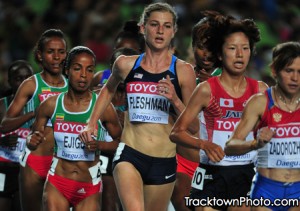Kids and reality television are a popular, if controversial, mix. What happens when you add competition to the mix? The situation can become volatile. It seems that kids are appearing more often in what are "competitive reality shows," as opposed to "candid reality shows." What's the difference? Candid reality shows, which would include the Real Housewives and The Real World franchises, follow people in their everyday lives or as they prepare for a specific event. That event could be a competition, as in Toddlers & Tiaras-- but the show itself isn't a competition. American Idol and Survivor, on the other hand, are competitive reality shows. The competition is the show, and because we get to know the contestants over a season a narrative arc develops (which separates them from straight game shows, for example).
Long before the boom of reality TV Star Search ruled the airwaves. If you're like me, or hundreds of other children of the 80s, you wanted to dance like the kids from America's Apple Pie who won many consecutive weeks in 1988.
After Star Search the next big talent show to hit the airwaves was, of course, American Idol, in 2002. The biggest show on television tried to add a children's competition during the summer of 2003-- American Juniors. The show, meant to create a kids' superstar pop group, faltered in the ratings and never returned (though it did bring us Lucy Hale, who now stars in ABC Family's Pretty Little Liars). I suspect that many viewers felt uncomfortable voting out tweens, preteens, and teens, crushing their dreams. (At the time I read that many of the parents were difficult behind the scenes as well, but it's unclear if this had anything to do with the decision not to renew the show.)
Shortly after American Idol lowered its entry age, allowing minors to compete. While this has produced several stars and winners, like Jordin Sparks, it's hard on both the show and contestants to be limited in rehearsal time, fit in schooling, and deal with guardians who must be present (even on tour). Other shows have emerged, briefly, to stage similar competitive talent competitions in the high school age group, including 2008's High School Musical: Get in the Picture (which also was a ratings flop). It seems like Americans want their (Disney) pop stars produced behind the scenes, rather than eliminated in front of them, and even at our own hands in audience voting shows.
But in the past week two new shows started that have made me wonder if times are changing and we are now willing to put kids through the same televised competitions as adults. First of all, Simon Cowell's new show, The X Factor, allows kids as young as 12 to compete. This is much lower than the American Idol minimum age requirement (just lowered to 15 last year). I know the show is trying to attract new and different talent, but to me this decision (and lack of protest) suggests a new willingness in the American viewing audience to subject kids to the same rigors as adults.
And, then there is a new series on The Hub: Majors & Minors. Majors & Minors (I'm sure the pun was intentional) focuses on twelve aspiring musicians aged 10-16. The host said at the beginning of the show that no contestant would be eliminated and no one would vote. Yet, the first episode centered on the "final callbacks," in which 29 kids were cut to 12. Clearly there was a cut-- but unlike other reality shows, the eliminated contestants weren't really featured (you could get glimpses of them in footage of classes from the final callbacks). Some of the kids seem extremely talent, so I'll be interested to watch as the series unfolds. While there aren't eliminations, this is a "music competition series," and the kids are competing for a recording and tour deal. There will be a "winner," and I'm sure all the parents and kids want that prize.
In both Majors & Minors and the X Factor, Justin Bieber was was mentioned. I am guessing his pop superstardom (along with others of late, like Willow Smith) has shown record execs that young kids can succeed and sell a lot of records (my sense is that Michael Jackson's young success may have sullied these waters for some time, for multiple reasons). Do you believe there can and should be another Justin Bieber, or even Taylor Swift, who started out as a successful songwriter and performer at a young age?
A final interesting kids/competition/reality twist this week: Last night while watching the premiere of The Amazing Race, I realized that one of the teams is the father and son from the Sunderland family. Who are they? Well the son, Zac, became the youngest person to sail around the world at age 17 in 2009. You may recall that his younger sister, Abby, made international headlines in 2010 when she attempted to break his record.. but had to be rescued out at sea. At the time the rumor was that the Sunderlands, especially the father, had been/were shopping around a family reality show. I wrote about them, in light of the Balloon Boy scandal, and other kid reality scandals, in USA Today. The reality show never materialized, but their appearance here makes me wonder. Was reality TV always the focus, as was rumored? How far will the father/son duo go and will they now parlay this competitive reality appearance into their own show?




